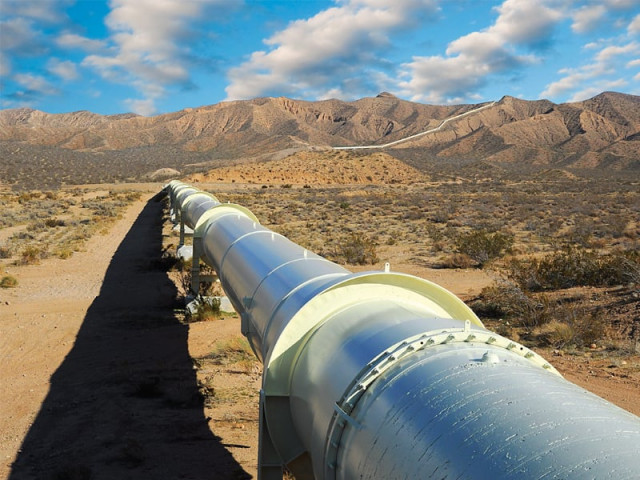Fertiliser sector to invest $100m to secure gas supply
Plan entails developing lower BTU fields, upgrade capacity of existing SNGPL pipelines.

The fertiliser sector has also agreed to pay a higher price for gas supply than it pays under the existing GSAs, and is also investing for smooth flow of gas from smaller fields. PHOTO: FILE
The Sui Northern Gas Pipelines (SNGPL)-based fertiliser plants will invest $100 million for developing lower British thermal units (BTU) gas fields to ensure uninterrupted gas supply to bring production at par.
The SNGPL network includes Pakarab Fertilizer, Engro Enven, Agritech and Dawood Hercules fertiliser plants.
The fertiliser sector has been deprived of gas since April 2010 and gets short bursts of gas supply throughout the year, making it one of the worst affected industries due to the prevailing gas crisis.
The idea behind taking the gas supply matter into their hands is to secure adequate gas supply for their own plants and considering the macroeconomic impact save millions of dollars of foreign exchange spent on urea imports every year.

Shahab Khawaja, executive director of Fertilizer Manufacturers Pakistan Advisory Council, said that the $100-million new gas allocation plan through a long-term arrangement is just a replacement of the current allocation mechanism to the SNGPL-based fertiliser plants. It will allow the plants to obtain gas through different smaller fields and the current mechanism will be discontinued.
“It is our legal right as all the fertiliser plants have gas sale purchase agreements in place with the utility providers,” he said.
The decision to carry out the plan was in line with the strategy to reduce dependence on the SNGPL network and to ensure uninterrupted gas supply to general and industrial consumers.
Pakistan’s agriculture sector contributes 24% to the gross domestic product and provided raw materials for all the major industries of the country including textiles and sugar.
Khawaja said the after implementation of the plan, Pakistan will become self-sufficient in fertiliser production, helping it save $500 million on account of foreign exchange and Rs20 billion as subsidy which it spends on importing one million tons of urea annually.
Earlier after the approval of the Economic Coordination Committee (ECC), fertiliser sector inked various GSAs with utility companies for adequate gas supply under the Oil and Gas Regulatory Authority’s (Ogra) Third Party Access Rules.
The long-term arrangement was also beneficial for the utility companies giving them an additional revenue stream and save 240 million cubic feet of gas per day allocated to the four fertiliser plants under existing GSAs with SNGPL.
While dispelling the impression that only the fertiliser sector will get gas from different small fields without any additional investment, Khawaja said that to facilitate the plan the sector was investing $100 million to increase pipeline capacities of the utility providers.
The SNGPL-based plants being large scale units were at the brink of collapse with a debt of over Rs100 billion.
The plan is a win-win situation for all the stakeholders as the plants upon receiving regular supply of gas from different small fields will be able to provide farmers with cheaper urea and gas companies will sell the gas to new customers at better prices.
The fertiliser sector has also agreed to pay a higher price for gas supply than it pays under the existing GSAs, and is also investing for smooth flow of gas from smaller fields.
The new agreement will, unlike in the past, not allow the government to divert gas supply to other sectors from the smaller fields making adequate gas supply a certainty for the raw material-starved fertiliser sector.
Published in The Express Tribune, May 23rd, 2013.
Like Business on Facebook to stay informed and join in the conversation.



















COMMENTS
Comments are moderated and generally will be posted if they are on-topic and not abusive.
For more information, please see our Comments FAQ